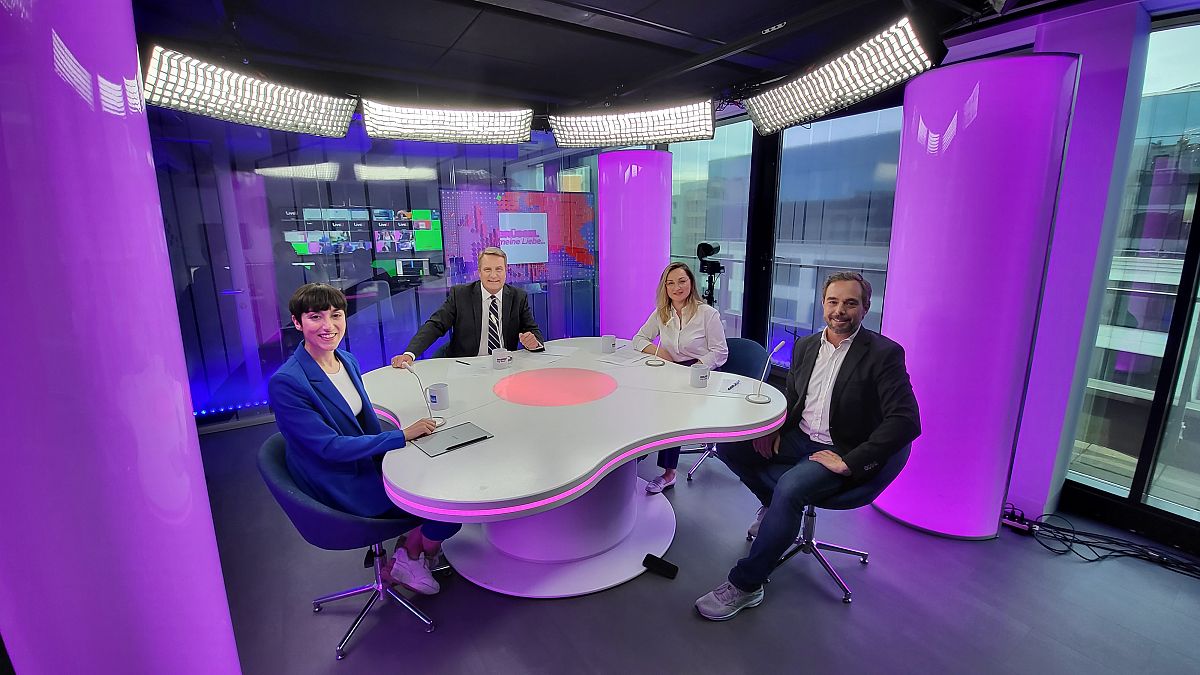Brussels, my darling? The battle for top jobs in the EU

In this edition of our weekly talk show, participants discuss the ongoing talks to fill the EU’s top jobs, the election campaign in France and football as a unifying factor.
The post-election horse-trading game went into overtime this week. Despite initial optimism from many participants, the informal EU Council failed to name the candidates for the bloc’s top jobs. There is reportedly no opposition to Ursula von der Leyen, Antonio Costa and Kaja Kallas, but the rest of the food fight was as ugly as ever. Who is to blame here?
Questions to our guests: Maria Rodriguez Alcazar, President of the European Youth Forum, Teona Lavrelashvili, political scientist and senior fellow at the Catholic University of Leuven, and Ricardo Borges de Castro, specialist in European and global affairs at the College of Europe in Bruges.
What was planned as a fast-track procedure turned out to be another act of great drama: the filling of the EU’s top jobs. An informal summit in Brussels fought in vain until midnight to confirm the appointments. And this despite the fact that there was no serious opposition to the candidates. The European People’s Party and Italy’s far-right government, both election winners, however, wanted a bigger share of the power pie. The result: Von der Leyen, Costa and Kallas will have to wait at least until the next regular summit next week. Too bad – this combination seems to be the perfect compromise in terms of political affiliation, geography and gender balance – or not.
Although there was no opposition to the top trio, as several summit participants confirmed, none of the candidates were without faults in public.
Ursula von der Leyen is not without controversy. There are still ongoing investigations into the “Pfizergate” scandal and alleged misconduct on her part regarding vaccine contracts.
She also faced harsh criticism for her unilateral approach in the war between Israel and Hamas and for a migration agreement with Tunisia that still infuriates human rights groups today.
Antonio Costa was initially a successful Prime Minister of Portugal until the police raided his office as part of a corruption investigation.
Costa was not found guilty of any crime, but his move from Lisbon to Brussels is seen by some as distasteful and grist to the mill of anti-EU populists.
Kaja Kallas eventually got into trouble following an investigation into her husband’s business dealings with Russia. She survived this political scandal, but her staunch pro-Ukrainian stance raised doubts about her impartiality and open-mindedness, which are considered necessary for the EU’s top diplomat.
The second theme was the political uncertainty, even fear, caused by the outcome of the European elections in France. President Emmanuel Macron’s decision to call new elections has led political parties to seek future alliances.
And that means a game of: Tell me who you are and I’ll tell you which coalition is best for you. It’s a fight of all against all. The old dynamics no longer seem valid and reliable.
Is France becoming ungovernable? What danger does this pose for Europe?
Finally, participants discussed UEFA Euro 2024, which has finally started! Football fans across the continent are watching the matches in one of Germany’s beautiful stadiums or on live TV. So far, the atmosphere is great and no violent incidents between fans have been reported. It looks like in these divisive times for our fragmented societies, football is a unifying factor – perhaps the only one left.



